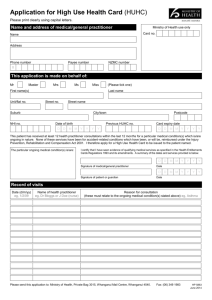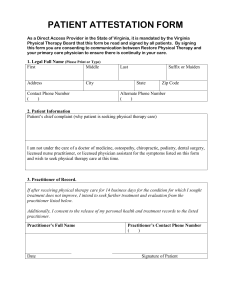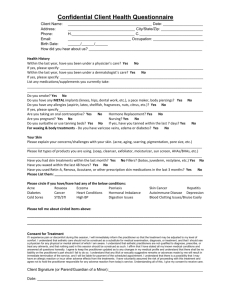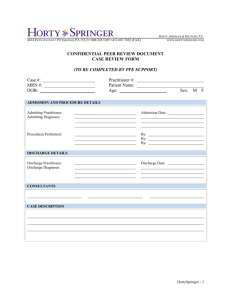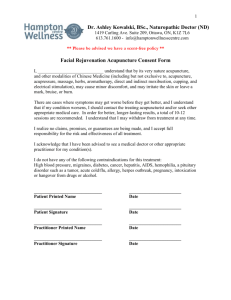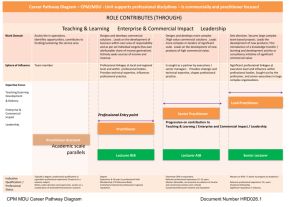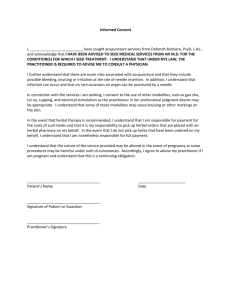(ISRS) 4410 (Revised), Compilation Engagements, 1 effective
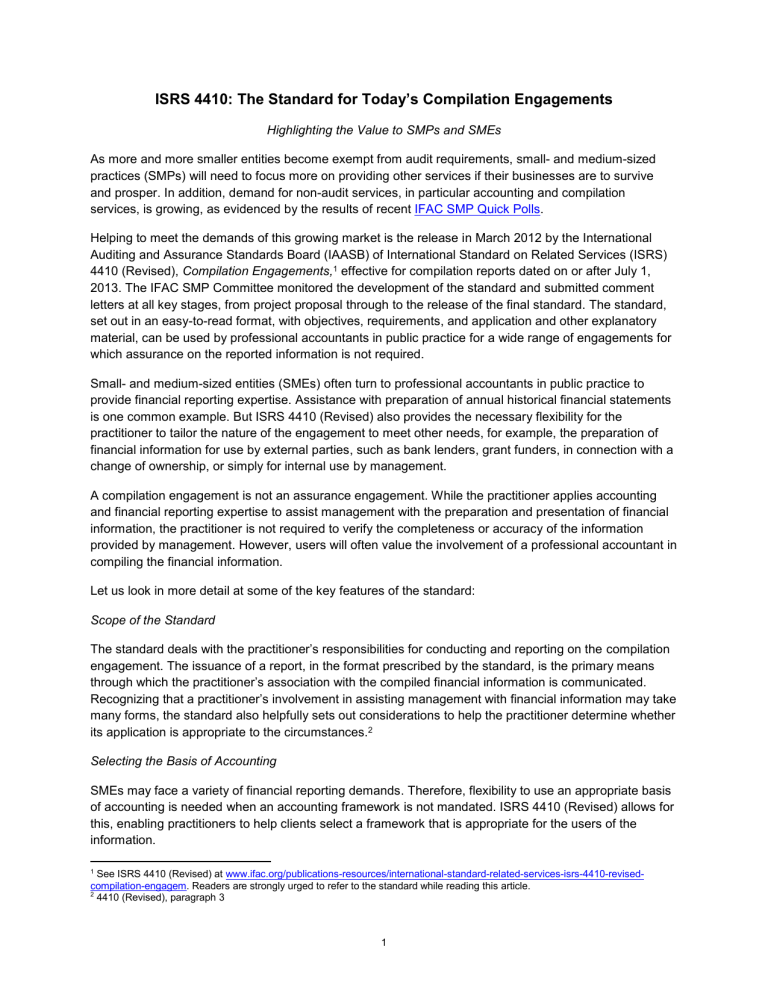
ISRS 4410: The Standard for T oday’s Compilation Engagements
Highlighting the Value to SMPs and SMEs
As more and more smaller entities become exempt from audit requirements, small- and medium-sized practices (SMPs) will need to focus more on providing other services if their businesses are to survive and prosper. In addition, demand for non-audit services, in particular accounting and compilation services, is growing, as evidenced by the results of recent IFAC SMP Quick Polls .
Helping to meet the demands of this growing market is the release in March 2012 by the International
Auditing and Assurance Standards Board (IAASB) of International Standard on Related Services (ISRS)
4410 (Revised), Compilation Engagements, 1 effective for compilation reports dated on or after July 1,
2013. The IFAC SMP Committee monitored the development of the standard and submitted comment letters at all key stages, from project proposal through to the release of the final standard. The standard, set out in an easy-to-read format, with objectives, requirements, and application and other explanatory material, can be used by professional accountants in public practice for a wide range of engagements for which assurance on the reported information is not required.
Small- and medium-sized entities (SMEs) often turn to professional accountants in public practice to provide financial reporting expertise. Assistance with preparation of annual historical financial statements is one common example. But ISRS 4410 (Revised) also provides the necessary flexibility for the practitioner to tailor the nature of the engagement to meet other needs, for example, the preparation of financial information for use by external parties, such as bank lenders, grant funders, in connection with a change of ownership, or simply for internal use by management.
A compilation engagement is not an assurance engagement. While the practitioner applies accounting and financial reporting expertise to assist management with the preparation and presentation of financial information, the practitioner is not required to verify the completeness or accuracy of the information provided by management. However, users will often value the involvement of a professional accountant in compiling the financial information.
Let us look in more detail at some of the key features of the standard:
Scope of the Standard
The standard deals with the practitioner’s responsibilities for conducting and reporting on the compilation engagement. The issuance of a report, in the format prescribed by the standard, is the primary means through which the practitioner’s association with the compiled financial information is communicated.
Recognizing that a practitioner’s involvement in assisting management with financial information may take many forms, the standard also helpfully sets out considerations to help the practitioner determine whether its application is appropriate to the circumstances.
2
Selecting the Basis of Accounting
SMEs may face a variety of financial reporting demands. Therefore, flexibility to use an appropriate basis of accounting is needed when an accounting framework is not mandated. ISRS 4410 (Revised) allows for this, enabling practitioners to help clients select a framework that is appropriate for the users of the information.
1 See ISRS 4410 (Revised) at www.ifac.org/publications-resources/international-standard-related-services-isrs-4410-revised-
2 compilation-engagem . Readers are strongly urged to refer to the standard while reading this article.
4410 (Revised), paragraph 3
1
The standard does not, however, permit an “anything goes” approach. In particular, the practitioner is required to have sufficient understanding of both the entity and the basis of accounting to advise the client if the selected basis of accounting is inappropriate for the engagement, 3 and the compiled financial information cannot be misleading.
4
Communication
There is a focus on communication throughout the standard: from the engagement letter setting out roles and responsibilities, to communication of all significant matters to management, to a clear and concise practitioner’s report.
5 As with any engagement, effective communication is the key to success.
Financial reporting requires judgment. Management may benefit from the practitioner ’s assistance in making such judgments, for example, in determining estimates for inventory obsolescence. The standard requires the practitioner to discuss with management all significant judgments for which the practitioner has provided assistance in the course of the engagement.
6 This communication is essential and must include sufficient detail for management to be able to take full responsibility for the compiled financial information.
Ethical Requirements
The practitioner must comply with relevant ethical requirements, and these include not knowingly being associated with materially false or misleading information.
7 The requirement for the practitioner to understand the entity’s business and operations and the basis of accounting sufficiently to perform the engagement speaks to that.
During the compilation, a practitioner may become aware that the records, documents, explanations, and other information, including significant judgments, are incomplete or inaccurate, in which case the practitioner is required to request additional or corrected information from management. Likewise, the practitioner may become aware of a material misstatement or an inadequate description of the basis of accounting in the compiled information, in which case the practitioner is required to recommend changes to management to rectify the situation. If in the rare circumstance management does not provide the additional information or agree to the change recommended, then the practitioner would have to resign from the engagement in order to avoid being associated with information known to be materially false or misleading. The practitioner either completes the engagement satisfactorily or else the practitioner must resign.
Note that there is no requirement in ISRS 4410 (Revised) for a practitioner to be independent of the client, since the concept of independence related to non-assurance engagements is not addressed in the
International Ethics Standards Board for Accountants (IESBA) Code of Ethics for Professional
Accountants.
8
Reporting
If a practitioner states compliance with ISRS 4410 (Revised), then a practitioner’s report must accompany the compiled financial information to help users of the compiled financial information understand the nature of the engagement. The report required by ISRS 4410 (Revised) clearly identifies the compiled
3
4410 (Revised), paragraph 28
4
4410 (Revised), paragraph 34c
5 4410 (Revised), Appendix 2 contains five illustrative reports.
6 4410 (Revised), paragraph 30
7 4410 (Revised), paragraph 21
8
See www.ifac.org/publications-resources/2012-handbook-code-ethics-professional-accountants
2
financial information, sets out the respective roles of management and the practitioner, and states that no assurance is being given.
Summary
With the growing demand for non-assurance services, ISRS 4410 (Revised) provides new opportunities for professional accountants in practice and their clients.
IFAC Resources
To learn more about the IFAC SMP Committee and access numerous SMP resources (all free of charge), visit the SMP area of the IFAC website: www.ifac.org/SMP .
Copyright © July 2012 by the International Federation of Accountants (IFAC). All rights reserved. Used with permission of IFAC. Contact permissions@ifac.org
for permission to reproduce, store, or transmit this document.
3


